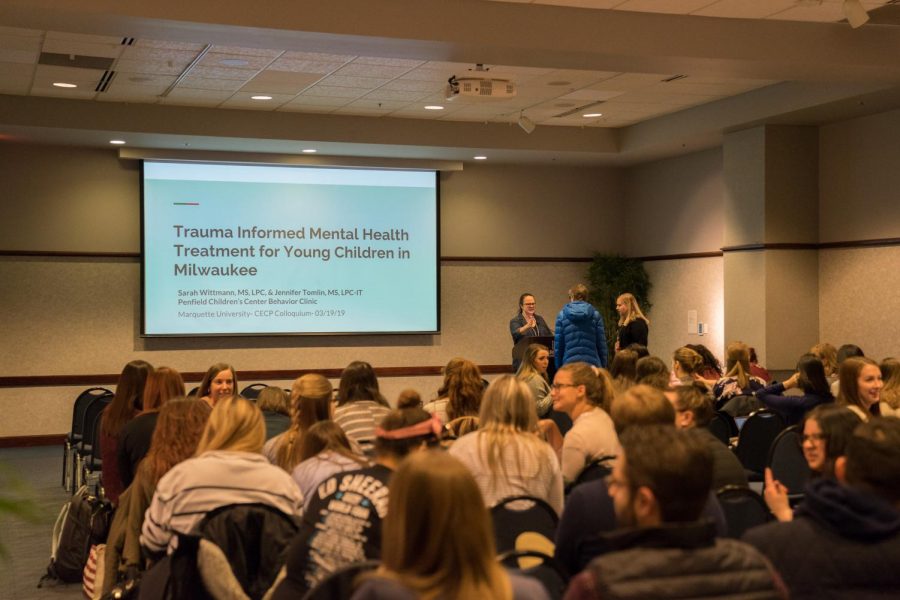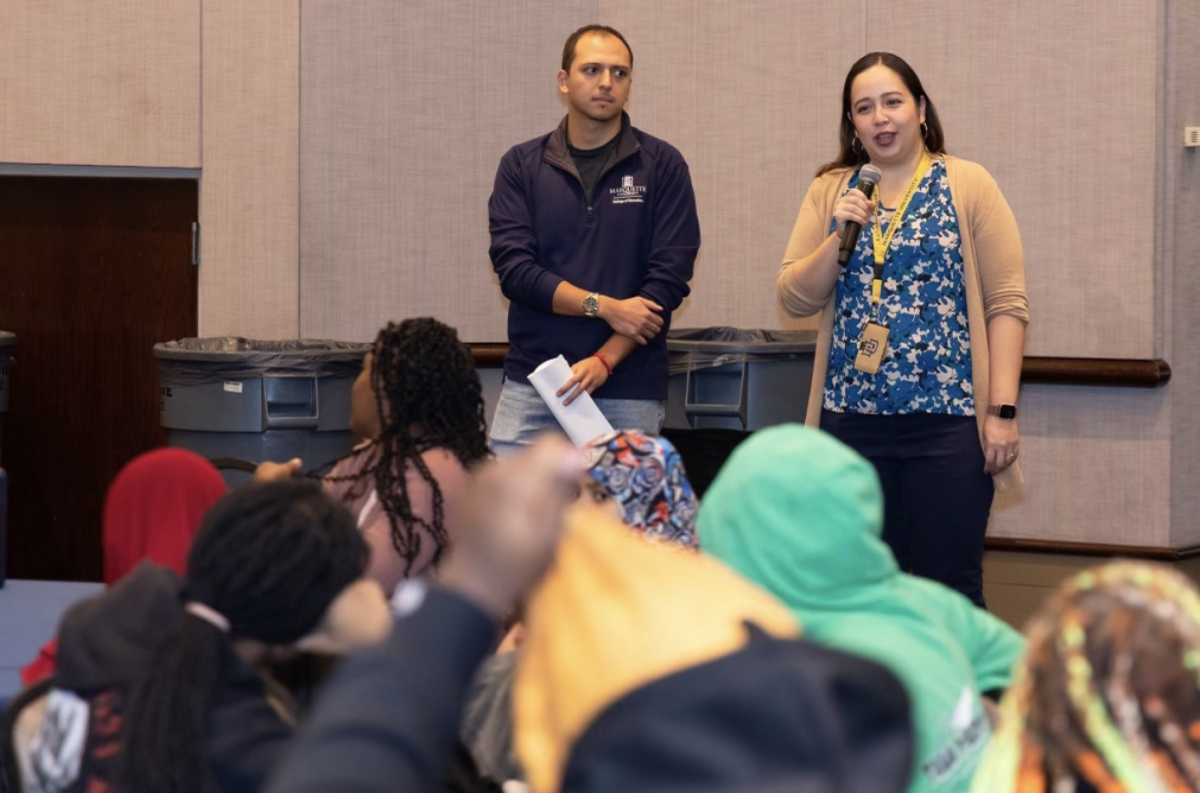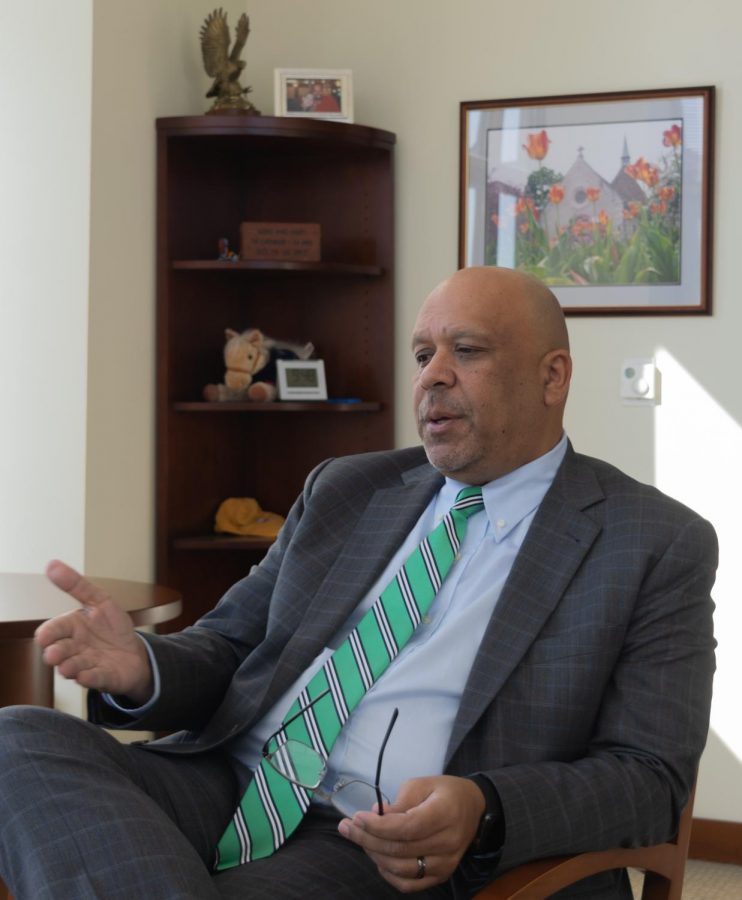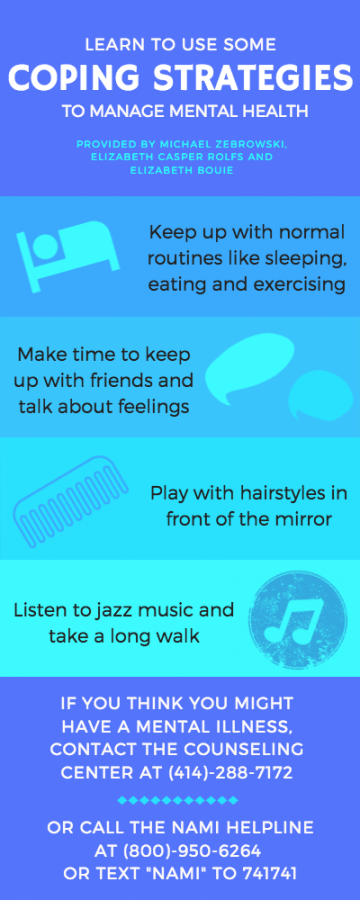Marquette University’s Department of Counselor Education and Counseling Psychology held the presentation “Trauma Informed Mental Health Treatment for Young Children in Milwaukee” on Tuesday, March 19, from noon to 1 p.m. in the Alumni Memorial Union.
Jennifer Tomlin and Sarah Wittmann, who work for Penfield Children’s Center Behavior Clinic, delivered a presentation to Marquette students and faculty on working with children and their families who have faced trauma and early intervention skills.
The Behavior Clinic was founded in 2003 by Marquette’s College of Education and Penfield Children’s Center and is focused on serving inner-city families with young children with developmental disabilities. The Behavior Clinic offers mental health services for children who are experiencing significant behavior and emotional problems.
“I think especially when you’re talking about trauma, one of the big things that we want to stress is that young children can be affected by things that have happened to them so we wanted to provide more information today about that,” Wittman said.
The presentation consisted of Tomlin and Wittman explaining ways to identify if children might be experiencing trauma, such as problematic behavior. They then discussed ways to combat these problems.
“These traumatic events can be severe, like witnessing domestic violence, or something minor, like moving from one house to the next,” Tomlin said. “While children may not fully understand the situation, it’s important to take action quickly.”
Wittmann explained that trauma is complicated and can often have lasting effects on children. She said that at Penfield, they target children 5 years of age or younger because they want to begin intervention early.
Freddy Hinkley, a junior psychology major in the College of Arts & Sciences, said the presentation was informative and helped him better understand childhood trauma.
“I think the effects of trauma on children often go unnoticed so it was a good idea to have this presentation at Marquette to inform the community that this is also a big issue,” Hinkley said.
Krystal Chao, a junior in the College of Health Sciences, said it is important to understand that children develop at different rates, so their understanding of trauma could also differ depending on this.
Wittman also recommended that therapy with children may be beneficial in helping explain a child’s behaviors and what you can do to help. “Whether you feel the cause is minor or severe, it is important to give your child the support they need,” she said.






